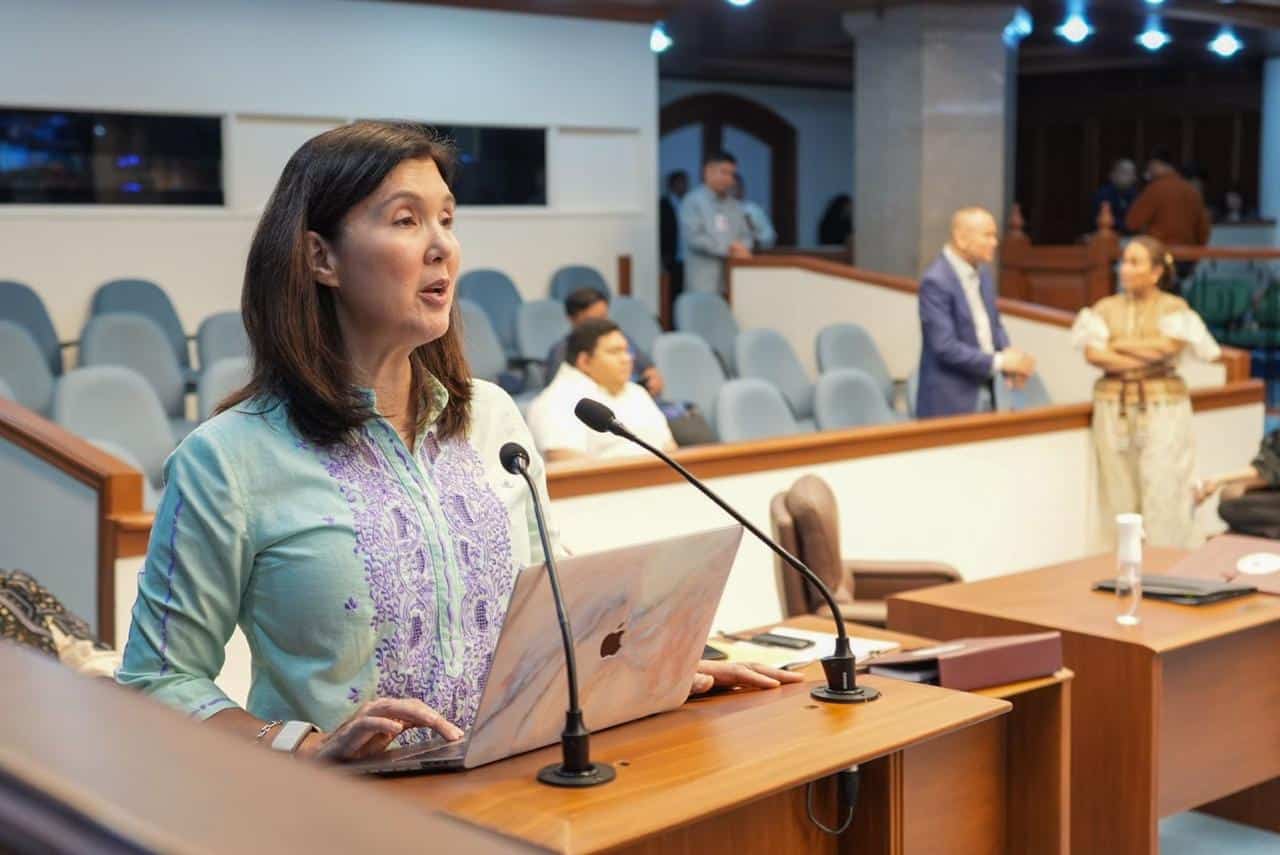Bill that seeks to regulate use of artificial intelligence filed in Senate

Sen. Pia S. Cayetano. (Senate Public Relations and Information Bureau)
MANILA, Philippines — Sen. Pia Cayetano has filed a bill that seeks to regulate the development and use of artificial intelligence, and promote its ethical and responsible innovation.
“As the Philippines continues its digital transformation journey, there is an urgent need for a national framework that ensures the safe, responsible, and ethical use of AI, aligned with our vision of an inclusive, innovative, and secure digital future,” said Cayetano in her bill’s explanatory note.
The measure also seeks to integrate sustainability and futures thinking in national policy making, among others.
“While AI holds vast economic and societal potential, it must be accompanied by a robust regulatory legal framework,” she stressed.
She noted that AI presents enormous opportunities for the Philippines, particularly in improving public services, advancing disaster resilience, modernizing agriculture, and enhancing education and healthcare systems, among others.
However, these innovations carry risks, she added.
“AI systems rely on data and models that may be incomplete, biased, or manipulated, reflecting the subjective or commercial choices of developers. These raise concerns such as algorithmic bias, discrimination, and AI hallucinations, where systems generate false or misleading outputs with confidence,” the senator said.
Moreover, Cayetano said, the global scientific and policy communities have raised alarms regarding the possible rise of artificial superintelligence (ASI), hypothetical AI systems surpassing human intelligence and potentially beyond human control.
This risk includes fears that such systems, if improperly secured or regulated, might gain unauthorized access to critical infrastructure, including military assets such as nuclear weapons, posing existential threats to humanity, she added.
In view of these challenges, Cayetano’s bill seeks to strike a careful balance between encouraging technological innovation and ensuring that AI systems remain safe, ethical, transparent, and under meaningful human oversight.
“Given that AI is still in its early stages, this bill provides a general framework to encourage its development in a responsible and lawful manner. It envisions a future where AI supports Filipino ingenuity, addresses national development challenges, and protects the rights and welfare of every citizen,” she said.
“The State bears the responsibility to ensure that AI will never be used to perpetrate crimes, abuse rights, cause harm or unintended consequences, whether through intent or accident, while supporting Filipino ingenuity and technological progress,” she noted.
“In view of the foregoing, the approval of this bill is earnestly sought,” she concluded.
Among the penalties provided by the measure are the development and deployment of unregistered AI systems. They may face revocation of business permit or licenses, and maybe blacklisted from government procurement and AI development grants.
They may also face a fine ranging from P500,000 to P5,000,000, or imprisonment of at least six months to three years, or both, in the discretion of the court.
Any person who intentionally uses AI systems to commit fraud, facilitate or conceal crimes, or cause harm to life, liberty, property, or national security shall suffer a fine ranging from P2,000,000 to P10,000,000, or imprisonment of six to 12 years, or both.
If the offense results in death, physical injury, or large-scale financial or reputational damage, penalties shall be imposed in their maximum period.
Any person who uses AI to create or disseminate disinformation, conduct mass opinion manipulation (e.g., through bots, deepfakes), or carry out surveillance without legal authority shall be punished with a fine of P1,000,000 to P5,000,000, or imprisonment of three to 10 years, or both.
Additional penalties shall apply if such acts are committed during election periods, public emergencies, or in violation of constitutional rights. /apl